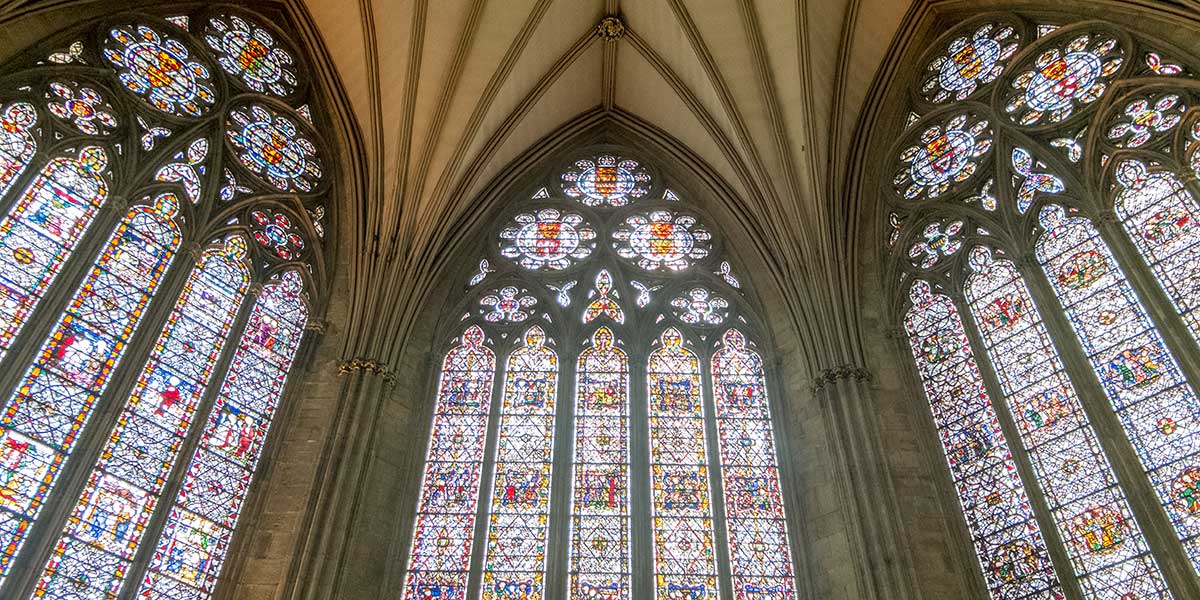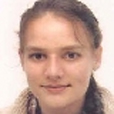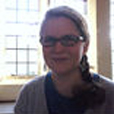View semester dates
2 years part-time

Explore the medieval world through its language and literature.
Year of entry: 2026 (September)
Study the whole range of medieval English literature — a dynamic, multilingual literary culture in which English interacted with many other languages and literatures.
Taught and supervised by world-leading scholars, with expertise in Latin, Old English, Middle English, Old Norse, Old French, medieval Italian, medieval Arabic, and Palaeography, you'll learn a range of linguistic and technical skills which are essential for further medieval research. You'll apply these skills to a substantial piece of independent work, giving you a foundation for doctoral research, as well as transferable skills for careers in heritage and culture, teaching, publishing, and arts management.
You’ll also engage with the wider research culture of the Department of English of Related Literature, one of the UK's largest research centres in English, and there will be a diverse schedule of seminars, conferences and reading groups for you to attend.

This MA has hugely expanded my knowledge of the subject itself, the scholarship growing up around it, and endowed me with invaluable experience in researching, writing, delivering seminar papers, and basically being an active postgraduate.
You'll study modules from a wide range of choices offered by the Department of English and Related Literature or the Centre for Medieval Studies. You can study the literature of medieval England, and explore other medieval European literatures as well.
You'll also study research skills, and complete a research dissertation. The total number of credits for the course is 180.
Reading the Middle Ages skills options
Our skills modules give you the choice of studying two European medieval languages, a language and palaeography, or Arabic.
Options typically include Latin (4 levels), Old English (2 levels), Old Norse, Old French, and three different periods of palaeography.
Either: Reading Medieval Texts or Multilingual Middle Ages or Arabic for Research
You will study four option modules. Examples can be found below. Some option module combinations may not be possible. The options available to you will be confirmed after you begin your course.
There are also a wide range of further option modules offered across all the Department's MA programmes which are available to you.
You may also choose available modules from other arts and humanities departments.
Our modules may change to reflect the latest academic thinking and expertise of our staff, and in line with Department/School academic planning.
Your dissertation offers you the chance to examine a topic in depth and to develop your research skills. You'll work on a 12,000-14,000-word dissertation with regular supervision from a member of staff.
You'll submit your dissertation at the end of your course. Recent dissertation examples include:
Every course at York is built on a distinctive set of learning outcomes. These will give you a clear understanding of what you will be able to accomplish at the end of the course and help you explain what you can offer employers. Our academics identify the knowledge, skills, and experiences you'll need upon graduation and then design the course to get you there.
| Study mode | UK (home) | International and EU |
|---|---|---|
| Full-time (1 year) | £12,000 | £26,900 |
| Part-time (2 years) This is the year 1 fee. Fees for future years are subject to confirmation. |
£6,000 | £13,450 |
Students on a Student Visa are not currently permitted to study part-time at York.
For courses which are longer than one year, the tuition fees quoted are for the first year of study.
UK (home) or international fees? The level of fee that you will be asked to pay depends on whether you're classed as a UK (home) or international student. Check your fee status.
Find out more information about tuition fees and how to pay them.
You'll need copies of the texts set for each module. Where possible, we will provide digital access. We'll let you know which texts and editions you'll need to buy (whether new or second-hand) before the start of each semester.
Discover your funding options to help with tuition fees and living costs.
We'll confirm more funding opportunities for students joining us in 2026/27 throughout the year.
If you've successfully completed an undergraduate degree at York you could be eligible for a 10% Masters fee discount.
We are pleased to work with Chevening Scholars to offer funding for our Masters programmes. Chevening Scholarships provide one year of fully-funded postgraduate study in the UK for international (including EU) students. The scholarships are open to early and mid-career professionals who have the potential to become future leaders.
You’ll work with world‐leading academics who’ll challenge you to think independently and excel in all that you do. Our approach to teaching will provide you with the knowledge, opportunities, and support you need to grow and succeed in a global workplace.
You'll normally attend two 2-hour seminars each week. If you are a part-time student you'll attend one 2-hour seminar a week.
Seminar groups consist of fewer than 16 students in most modules, though some core modules may involve a larger number of students. You'll complete essential reading for each seminar, and we encourage you to read more widely around the topic.
You'll attend a series of training lectures and workshops, designed to address presenting your work, writing at MA level, transferable skills, and career development.
Over the course of the year, you'll have the opportunity to attend research seminars and conferences hosted by the Department. You can also attend events organised through the Humanities Research Centre, a stimulating community unique to York.
As a postgraduate student at the Centre for Medieval Studies, you will have access to a wealth of world-class resources to support your studies. These include the Borthwick Institute for Archives, the York Minster Library and Archives, and JB Morrell Library.
These libraries hold a large collection of medieval manuscripts, archives, and early printed books, as well as extensive collections of modern critical books, journals, catalogues, and e-resources. Medieval materials from these libraries are regularly used by staff and students for research and teaching. The libraries also offer a variety of study spaces, for both group work and quiet study.
A short bus trip away from York is the British Library resource at Boston Spa, which offers students an invaluable opportunity to access any document from the entire British Library collection.
But perhaps the greatest resource is the city of York itself. Few cities in the UK can rival York as a place to study the Middle Ages, and teaching and research at the CMS makes full use of it.
You'll be based at the Centre for Medieval Studies, which has a lively interdisciplinary research culture.
Our beautiful green campus offers a student-friendly setting in which to live and study, within easy reach of the action in the city centre. It's easy to get around campus - everything is within walking or pedalling distance, or you can always use the fast and frequent bus service.
You'll submit an essay for each module of approximately 3,500-4,000 words. Your final assessment is a dissertation of 12,000-14,000 words.

The MA in Medieval Literature has been challenging, interesting, and so rewarding. There is never a dull day between the Middle-English romances, Anglo-Norman histories, Viking poetry, and everything else that we get to study.
Our postgraduates go into a wide variety of industries, from arts administration to law. Many alumni have also gone on to become successful novelists, poets and playwrights.
| Qualification | Typical offer |
|---|---|
| Undergraduate degree | 2:2 or equivalent. You do not need to have specialised in medieval literature at undergraduate level, or already mastered the languages required for the degree as we will provide intensive training during the course. We will consider applications from students with lower qualifications, particularly if you have high marks in relevant modules or appropriate professional experience. |
| Other international qualifications | Equivalent qualifications from your country |
You will need to submit examples of written work with your application. Please see our guidance on submitting written work.
If English isn't your first language you may need to provide evidence of your English language ability. We accept the following qualifications:
| Qualification | Minimum requirement |
|---|---|
| IELTS (Academic and Indicator) | 6.5, minimum 6.0 in each component |
| Cambridge CEFR | B2 First: 176, with 169 in each component |
| Oxford ELLT | 7, minimum of 6 in each component |
| Oxford Test of English Advanced | 136, minimum 126 in each component |
| Duolingo | 120, minimum 105 in all other components |
| LanguageCert SELT | B2 with 33/50 in each component |
| LanguageCert Academic | 70 with a minimum of 65 in each component |
| Kaplan Test of English Language | 478-509, with 444-477 in all other components |
| Skills for English | B2: Merit overall, with Pass with Merit in each component |
| PTE Academic | 61, minimum 55 in each component |
| TOEFL | 87, minimum of 21 in each component |
| Trinity ISE III | Merit in all requirements |
For more information see our postgraduate English language requirements.
You may be eligible for one of our pre-sessional English language courses. These courses will provide you with the level of English needed to meet the conditions of your offer.
The length of course you need to take depends on your current English language test scores and how much you need to improve to reach our English language requirements.
After you've accepted your offer to study at York, we'll confirm which pre-sessional course you should apply to via You@York.
Get in touch if you have any questions



